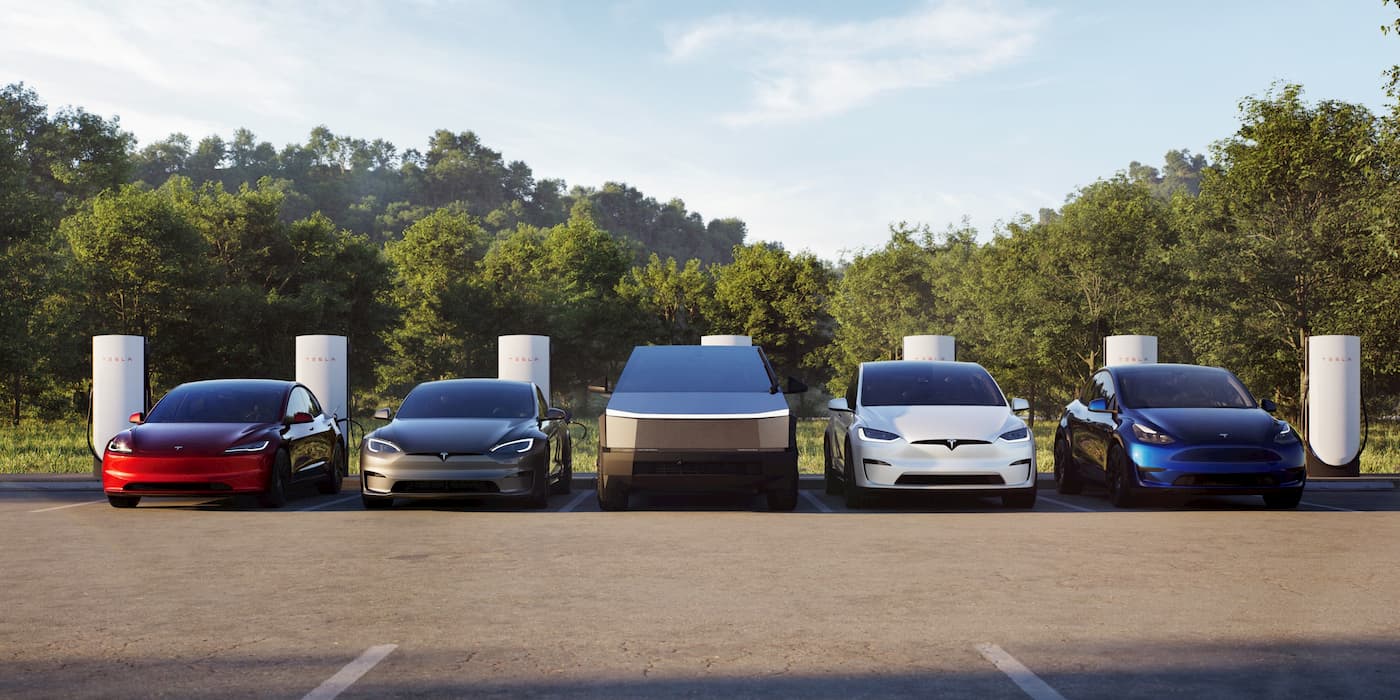
BYD is making a strong push overseas as it expands into new markets. With sales surging in China, Southeast Asia, Japan, Brazil, Mexico, and other key markets, will it be enough for BYD to take back the EV sales crown from Tesla? New research suggests it could happen sooner than expected.
After BYD sold more electric cars (fully electric, not PHEV) than Tesla for the first time in Q4 2023, Tesla quickly took back the title earlier this year.
BYD sold just over 300,0000 EVs in Q1, while Tesla delivered over 386,000 vehicles in the first three months of 2024.
Although BYD’s EV sales rose 42% in Q2, it still wasn’t enough to regain the EV sales crown from Tesla. BYD sold 426,039 EVs between April and June, just below Tesla’s 443,956 vehicle deliveries.
Meanwhile, research from Counterpoint claimed BYD could regain the title by the end of 2024. With China remaining “the dominant force in the BEV market,” the report suggests BYD is poised to top Tesla in EV sales this year.
According to the report, China will maintain a commanding 50% share of the global EV market until 2027. By 2030, China is expected to sell more EVs than Europe and North America combined.
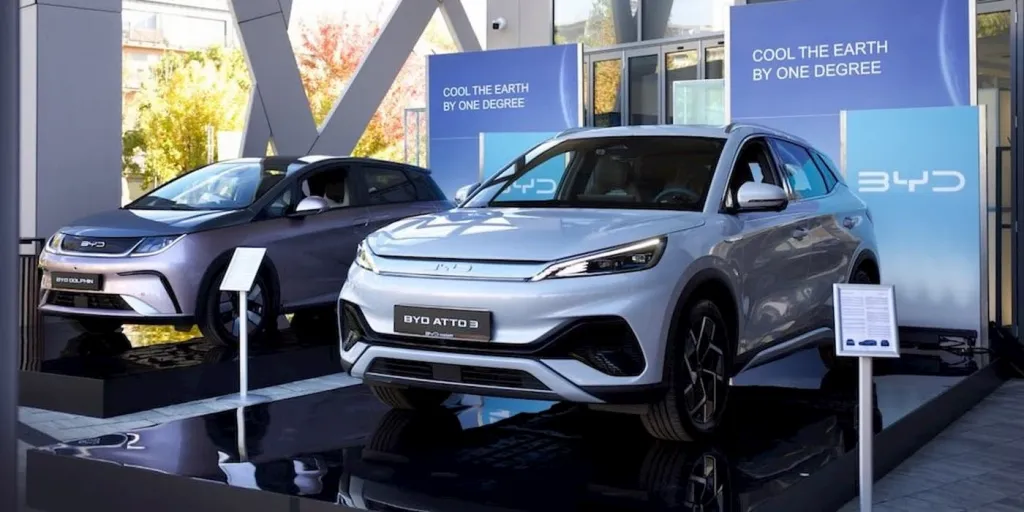
Will BYD take back Tesla’s EV sales crown?
New Bloomberg Intelligence (BI) research reaffirms that BYD is on track to regain the title by the end of 2024.
The report points out that while EV demand continues surging in China, the US and Europe are lagging. In January, BI suggested Tesla would maintain its lead through the end of the decade. However, the market is shifting, and new policies could influence sales in key sales regions.
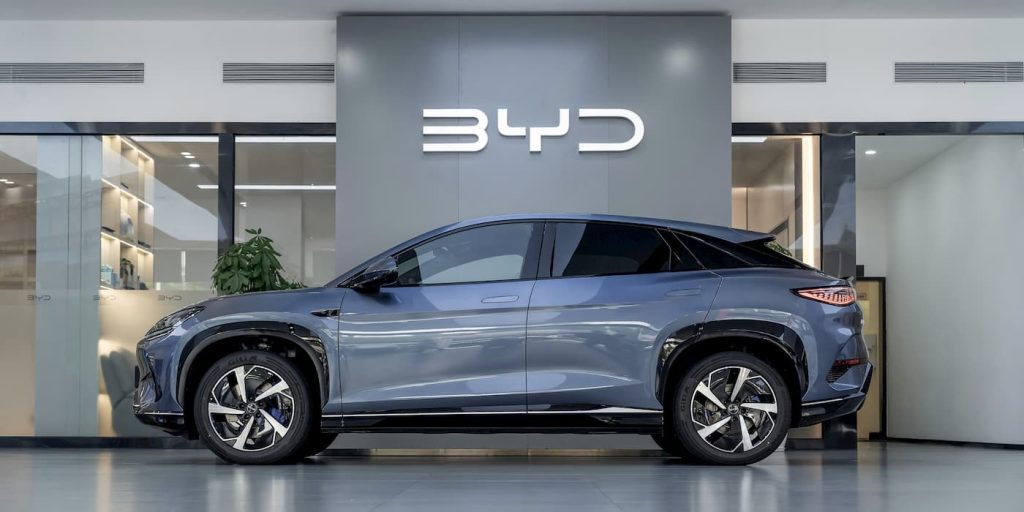
After reporting Q2 earnings on Tuesday, Tesla warned of a “notably lower” growth rate this year.
While Tesla said new vehicles, including “more affordable models,” remain on track for the first half of 2025, BYD already has many low-cost models. They are also reaching overseas markets rapidly as BYD expands outside of China.
Despite new tariffs in Europe and the US, BYD is widening its lead in high-growth EV regions, including Southeast Asia and Central and South America.
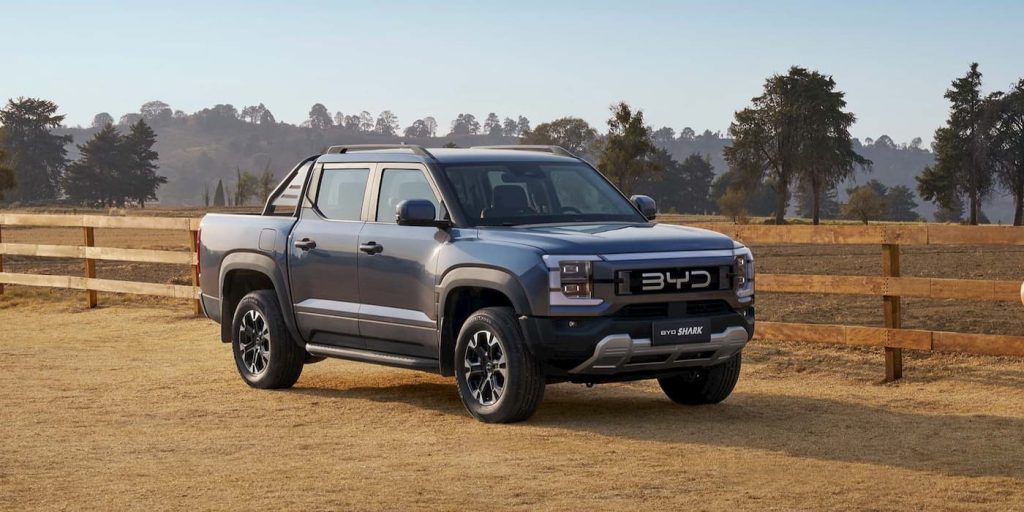
New government data (per Reuters) shows BYD’s lead is growing in Singapore. BYD’s EV sales surged 83% in Singapore in the first half of the year compared to all of 2023.
With 2,587 EVs sold, BYD was well ahead of Tesla, which placed second with 969 vehicles sold, just 28 more than the first half of 2023.
Singapore, like many Southeast Asian countries, has set an aggressive timeline to end ICE car sales. The nation aims to end ICE car sales by 2030. With roughly one-third of total vehicle sales being electric in the first half of 2024, the goal is within reach.
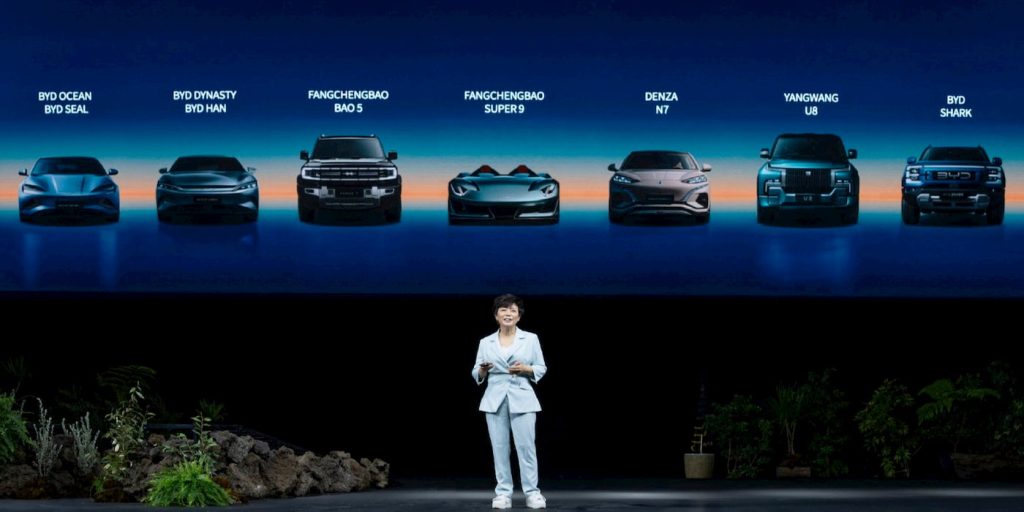
In Brazil, BYD became the largest importer with 32,500 vehicles, nearly three-quarters of the country’s imports in the first half of the year.
The automaker also just launched Indonesia’s first electric MPV, the BYD M6. It starts at 379,000,000 RP, or about $23,400.
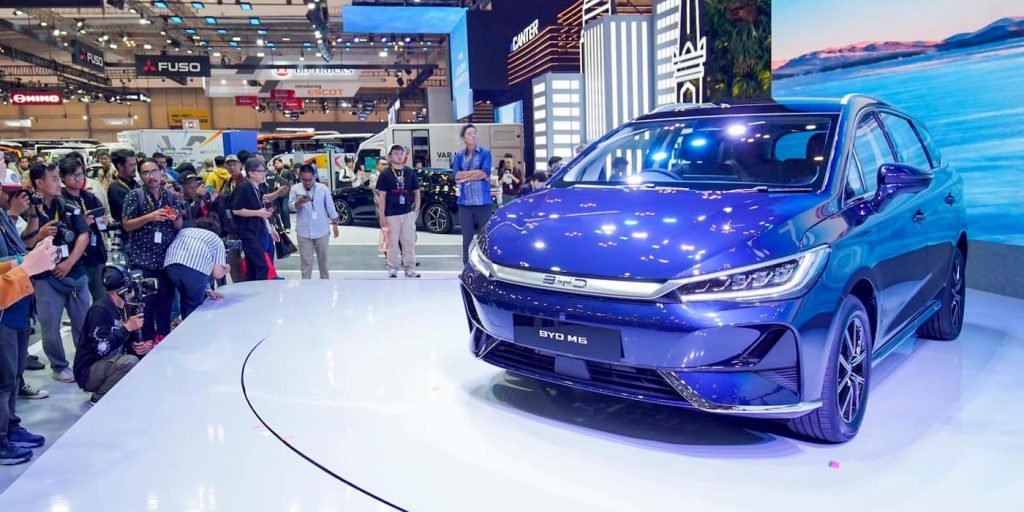
Lastly, BYD is expanding its manufacturing footprint overseas. BYD opened its first plant in Thailand this month, with others planned in Turkey, Brazil, and Mexico.
Electrek’s Take
Top comment by VoltMan
I'm a true blue fanboi, but even I admit BYD got the jump on Tesla by sticking in its market segment (cars) and not wild weird stuff like robots. If Tesla had put even half the R&D it did into robots, AI, and junk, it would have a broader set of offerings to appeal to every segment.
Although BYD is known for its affordable electric cars, like the Dolphin, Seagull, and Atto 3, the automaker is quickly expanding into new segments.
Its first pickup, the Shark PHEV, was launched in Mexico in May. BYD also launched its new mid-size electric SUV, the Sea Lion 07, a direct rival to Tesla’s top-selling Model Y. Starting at $26,250 (189,800 yuan), BYD’s new EV undercuts the Model Y, which starts at $34,550 (249,900 yuan), in China. BYD’s Sea Lion 07 was spotted overseas last week, with an expected launch by the end of 2024.
BYD is also launching luxury vehicles, updated EV models with more range, and electric sports cars.
Will it be enough to steal Tesla’s EV sales crown? Research suggests it will. What do you think? Let us know in the comments.
FTC: We use income earning auto affiliate links. More.



Comments